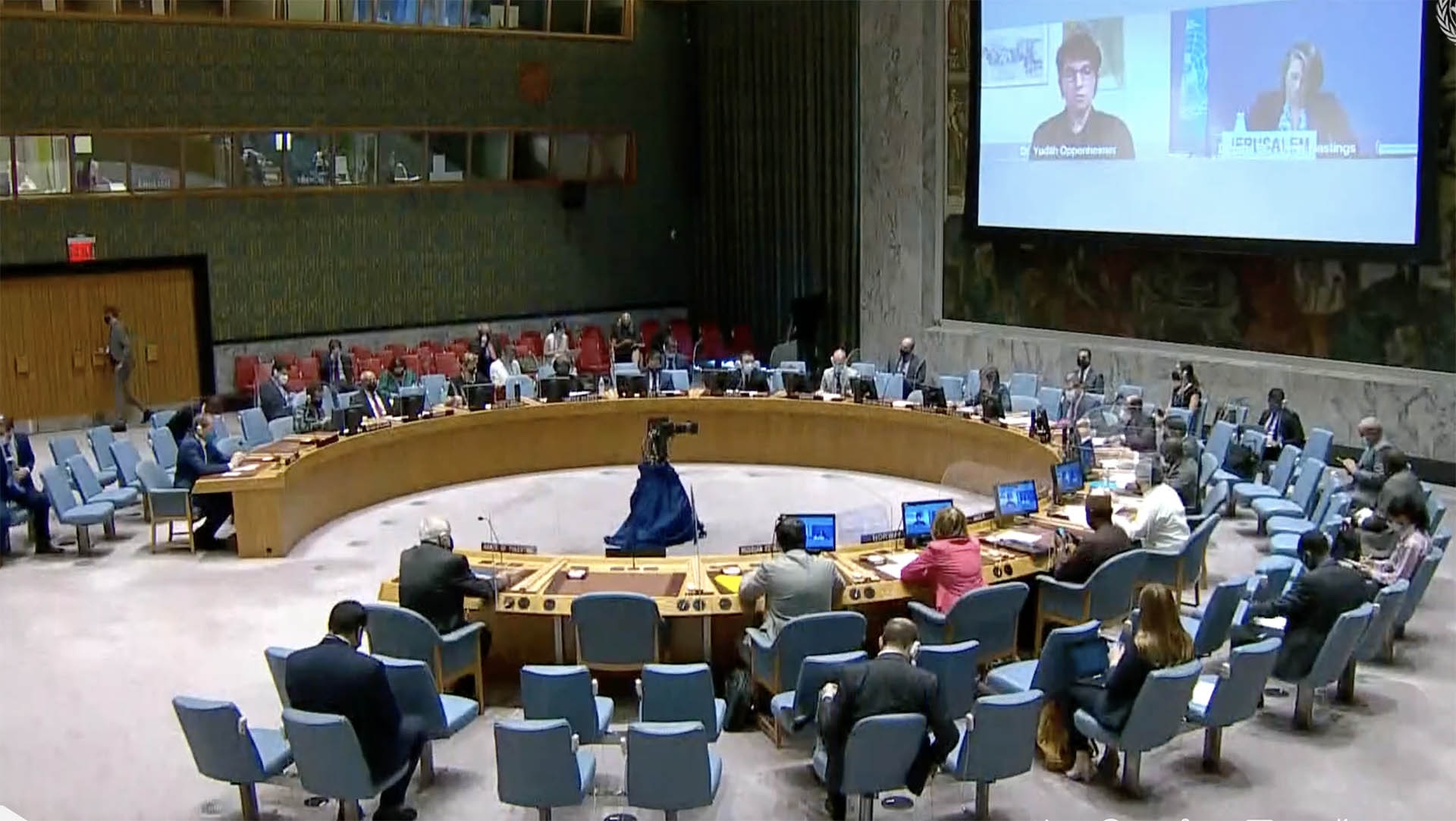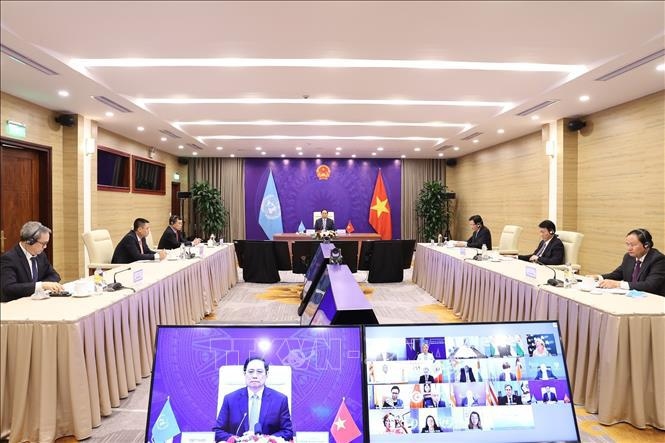
UNSC in the third quarter: Viet Nam continued to demonstrate its responsibility as an active member
Latest
The UNSC adopted 35 official documents, including 15 Resolutions. Notably, from July, the UNSC organized face-to-face meetings at the UN headquarters, marking the step of adapting to the “new normal”. Noticeable regional issues were discussed at the UNSC.
In Asia, the situation in Afghanistan captured close attention as countries and international organizations were concerned about unforeseen difficulties in humanitarian activities, feminism, freedom, democracy and security after the Taliban returned to power.
With the objective of restoring peace, stability and protecting civilians and critical infrastructure in Afghanistan, the UNSC unanimously adopted Resolution 2593 allowing the evacuation of foreign nationals and Afghans from the country and Resolution 2596 extending the mandate of the UN Assistance Mission in Afghanistan (UNAMA) for six months.
 |
| An open debate session of the UNSC. (Photo: VNA) |
With regard to the situation in Myanmar, the UNSC held a meeting on Myanmar with the participation of the Foreign Minister of Brunei in the capacity of Special Envoy of the ASEAN Chairman. At the meeting, the member countries continued to highly appreciate the central and active role of ASEAN in implementing the Five-Point Consensus approved in April. However, a number of member countries expressed their concern about the deadlock in promoting a solution to the situation in Myanmar.
In addition, the United States and a number of European countries proposed a meeting of the UNSC twice on North Korea to express their concern about North Korea's repeated missile tests.
In the Middle East, Russia and the US reached an agreement on extending the humanitarian aid mechanism across the Syrian border, helping to reduce tensions over one of the most controversial documents between Russia and Western countries in recent years.
In Africa, the situation of Libya, Central African Republic, West Africa - Sahel, Mali, Somalia, Democratic Republic of the Congo, South Sudan, and Yemen remain instable and complex without political and security progress.
With regard to thematic issues, the UNSC discussed nine topics which are diverse and meaningful, such as maritime security, climate change, the COVID-19 pandemic, science, technology and peacekeeping, protection of civilians in armed conflicts.
Specifically, the High-Level Open Debate on “Climate Security” chaired by Ireland’s Prime Minister on 23rd, September revealed a broad general awareness of the seriousness of climate change for human life, the large gap between worldwide commitment and action, and the urgency to prevent the negative, far-reaching impacts of climate change.
The High-Level Open Debate on “Maritime Security” chaired by the Prime Minister of India on 9th, August showed the diverse and great interest of country members in maritime security in different respects.
For the first time, the UNSC adopted a Presidential Statement on maritime security, providing an important basis for establishing the framework for general debate of the international community on this issue. Specifically, the UK, US and France actively criticized acts of “bullying”, “threat” in the South China Sea and advocated the 1982 United Nations Convention on the Law of the Sea (UNCLOS) and the 2016 Arbitration Award in the South China Sea case.
In addition, the UNSC adopted two resolutions on the topic of peacekeeping, which continues to be a major common point of UNSC members, namely increasing the use of technology in peacekeeping (proposed by India) and transitioning from peacekeeping to peacebuilding (proposed by Ireland).
In the third quarter, Viet Nam continued to participate in the UNSC’s activities in the spirit of independence, self-reliance, positivity and responsibility.
Notably, Vietnamese President Nguyen Xuan Phuc, along with Prime Minister Pham Minh Chinh, attended and delivered important speeches at the High-Level Open Debate on “Climate Security” and “Maritime Security” respectively.
 |
| Prime Minister Pham Minh Chinh virtually attended the UNSC high-level open debate on enhancing maritime security on August 8th, 2021. |
The participation of Vietnamese senior leaders in the two important events of the UNSC has continued to strongly affirm the foreign policy of independence, self-reliance, multilateralization and diversification of the 13th Congress of the Party and demonstrate Viet Nam’s responsibility to the concerned issues of the international community.
In response to complicated international and regional issues, Viet Nam has continued to find satisfactory and sustainable solutions, ensuring its principled stance and national interests. On the issue of Myanmar, Viet Nam called for the practical support of the international community in the implementation of the ASEAN Five-Point Consensus.
With respect to the situation in Afghanistan, Viet Nam affirms its principled stance in favor of a political solution in Afghanistan led and controlled by the Afghan people; upholding the supporting role of the UN and international partners on the basis of the UN Charter and international law.













